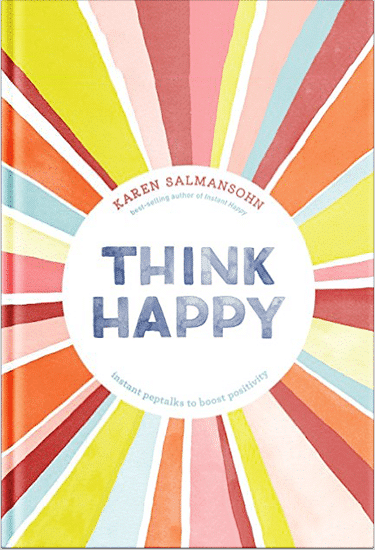 Did you ever take a moment to wonder: What is the importance of literature in modern society?
Did you ever take a moment to wonder: What is the importance of literature in modern society?
How often do we question why something is a part of our education… even if it doesn’t seem to fit into our daily lives?
Well, I believe that literature is an essential part of human culture …and it’s been so for centuries.
Literature has played a key role in…
- influencing our understanding of the world
- shaping societal norms and values
- inspiring us to think critically about the world around us
I believe that in today’s society, literature remains an important part of our education and cultural landscape.
Literature offers unique insights into human behavior. It challenges us to think creatively, sparking new ideas and debates.
Plus literature provides a medium through which we can share our experiences and stories.
I’m writing this article because I care a lot about helping people to live at their highest level and empowering our world to be a better place. And I believe in the power of literature.
Maybe it’s because I myself am an author that I’m saying this.
Yes, I am a bestselling personal development author with about 2 million books sold globally.
Plus I founded a groundbreaking and therapist recommended video course called The Anxiety Cure.
I’m passionate about sharing tools to help people to live their happiest and most successful lives.
With this in mind, I put together this article explaining why I believe it’s essential to read and analyze to develop your skills for life.
If you need help, you can hire me as a writing consultant.
Or explore online assistance from places like Long Way Down Summary – StoryboardThat to help.
So let me explain more about my perspective on the power of literature.
The Use of Literature
Some of the key benefits of literature in modern society include:
 1. Providing a window into other cultures, viewpoints, and perspectives.
1. Providing a window into other cultures, viewpoints, and perspectives.
And it doesn’t relate only to non-fiction.
Modern and even classical works also allow us to better understand other cultures.
Especially when it comes to certain events or people.
Often, literature is an ideal medium through which we can explore other perspectives and lifestyles, without having to directly experience them ourselves.
2. Encouraging critical thinking and creative problem-solving.
Literature challenges us to think outside of the box, imagine scenarios and situations that may not exist in the real world, and consider different viewpoints.
Through literature, we can imagine new opportunities and possibilities, helping us to develop the creative problem-solving skills needed to excel in today’s rapidly changing world. A good opportunity to develop these skills is to analyze the read material.
In other words, you should not only read something and forget about it in the next few days but explore the main ideas and events, their influence on the characters, and how the latter ones responded to them.
This will help you to understand how these events affect our society.
3. Inspiring us to explore new ideas, express our creativity, and imagine the unimaginable.
In today’s fast-paced, hyper-connected world, it can be difficult to find the time and space for deep reflection and introspection.
Yet literature provides a unique opportunity to do just that, exploring new ideas and concepts, expressing our creativity and imagining what may be possible.
It is proven that reading helps to develop imaginative thinking, which might be useful in many areas of our lives. And it doesn’t relate only to creatives but also to any other person and situation.
4. Engaging us in important social and cultural conversations.
Literature allows us to immerse ourselves in unique stories, experiences, and perspectives.
This can help us to better understand and empathize with others, sparking new dialogues about important social and cultural issues.
Moreover, these conversations can lead to positive changes in our personal lives and society as a whole.
5. A better understanding of people’s behavior and development of empathy.
As mentioned above, literature lets us explore different experiences, cultures, and points of view. This allows us to gain new knowledge about people’s behavior and understand the reasons for their actions better.
Such understanding might be useful not only in our personal lives but also when working with others on a team or making any important decision that affects many people.
Importance of Literature for Children
Literature also plays an essential role in developing children’s literacy and critical thinking skills. Engaging them in stories and imaginary worlds. With some Assignment Help, it can help to build strong reading habits and improve their understanding of language, grammar, and narrative structure.
Furthermore, through the use of symbolism and metaphor, it can also encourage children to explore new ideas and think critically about the world around them.
Some of the key advantages of literature for children include:
 1. Increased reading fluency and comprehension.
1. Increased reading fluency and comprehension.
The repetitive structure of most narrative works helps to improve children’s word recognition, sentence comprehension, and overall fluency in reading.
2. Improved language and grammar skills.
By engaging children in stories, literature encourages them to think about the use of language and how it can be effectively applied in different situations. This can lead to improved writing skills and stronger abilities in creative expression.
3. Encouragement of critical thinking and creative problem-solving.
Literature encourages children to think outside of the box, imagine scenarios that may not exist in the real world, and consider different viewpoints. In fact, many educational games use fictional scenarios to help young learners practice their critical thinking skills.
4. Improved understanding of complex social and cultural issues.
Children’s books often depict challenging social situations, from bullying to racism, and encourage children to explore these topics in their own lives and determine how to respond. Through reading about the experiences of others, it can also help young learners to better understand the perspectives of people who may be different from them.
5. Increased motivation to read and learn new topics.
 By immersing children in fictional worlds, literature can help to spark an interest in reading, learning about a variety of topics, and exploring new ideas and concepts. This can be particularly beneficial for young learners, who may not yet have the same level of motivation as older children and adults.
By immersing children in fictional worlds, literature can help to spark an interest in reading, learning about a variety of topics, and exploring new ideas and concepts. This can be particularly beneficial for young learners, who may not yet have the same level of motivation as older children and adults.
6. Increased empathy and understanding of others’ feelings.
Children’s books also depict characters with a variety of personalities, experiences, and challenges. This can help children to develop an understanding and empathy for others, which in turn leads to more positive relationships with other children as well as adults.
In Conclusion: Benefits and Importance of Literature in Modern Society
The importance of literature in modern society cannot be underestimated.
Whether it’s through fiction or non-fiction, literature allows us to gain unique insights into other cultures, develop critical thinking and creative problem-solving skills, explore new ideas and concepts, engage in important social and cultural conversations, and better understand ourselves and others. For these reasons and many more, we should continue to value and promote literature in the modern world.
Stay Calm During Stressful Times
Explore my therapist recommended relaxation training – called The Anxiety Cure.
Think happier. Think calmer.
Think about subscribing for free weekly tools here.
No SPAM, ever! Read the Privacy Policy for more information.
One last step!
Please go to your inbox and click the confirmation link we just emailed you so you can start to get your free weekly NotSalmon Happiness Tools! Plus, you’ll immediately receive a chunklette of Karen’s bestselling Bounce Back Book!



 Did you ever take a moment to wonder: What is the importance of literature in modern society?
Did you ever take a moment to wonder: What is the importance of literature in modern society? 1. Providing a window into other cultures, viewpoints, and perspectives.
1. Providing a window into other cultures, viewpoints, and perspectives.  1. Increased reading fluency and comprehension.
1. Increased reading fluency and comprehension.  By immersing children in fictional worlds, literature can help to spark an interest in reading, learning about a variety of topics, and exploring new ideas and concepts. This can be particularly beneficial for young learners, who may not yet have the same level of motivation as older children and adults.
By immersing children in fictional worlds, literature can help to spark an interest in reading, learning about a variety of topics, and exploring new ideas and concepts. This can be particularly beneficial for young learners, who may not yet have the same level of motivation as older children and adults.